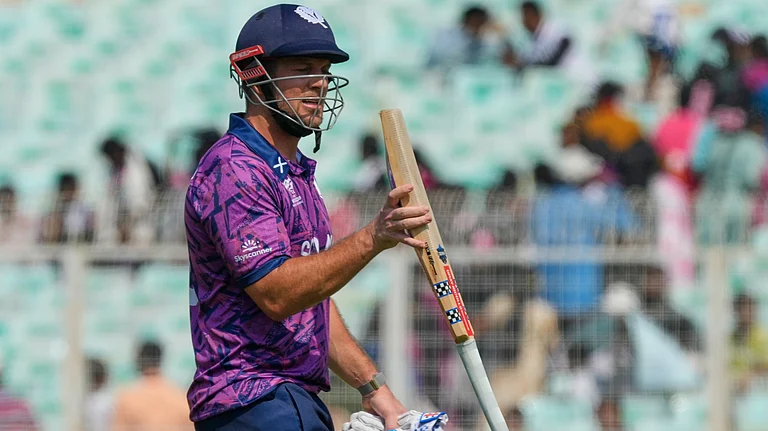THE whipping boy of all revenue departments gets yet another stinging lash. But this time around, liquor manufacturers are finding it hard to drown their sorrows in a bottle. The Maharashtra government has decided to levy, with effect from January 7, 200 per cent excise duty on the manufacturing price of liquor, on the condition that the retail price to the consumer must not exceed four times the manufacturing price.
Elsewhere in India, and worldwide, the excise on liquor is determined by its alcoholic strength. In Maharashtra too, the excise till now was fixed at Rs 675 per case or nine litres of liquor, earning an annual revenue of Rs 400 crore for the state government. The new excise scheme would double this revenue inflow.
Manufacturers of Indian Made Foreign Liquor (IMFL) feel the latest move is an extreme instance of 'progressive taxation'. When foreign liquor brands entered India a few years ago, an 8 per cent value added tax (VAT) was introduced which translated into Rs 60 per bottle for an Indian brand and Rs 120 for scotch and other high-priced foreign brands. The VAT will now go, making cheap brands cheaper and expensive ones dearer still.
Brands whose cost of manufacture is less than Rs 330 per case (or Rs 27.50 per bottle of 750 ml) will still pay an excise duty of Rs 675 per case, but those with a higher manufacturing cost will pay 200 per cent duty. In brand terms, liquor costing more than the price of a Directors' Special whisky (which costs Rs 140-180 per bottle), will fall under the 200 per cent duty.
Manufacturers closely guard their cost of manufacture, emphasising that a duty hike will wipe out the 30 per cent profit margin enjoyed at present. If the manufacturing price of a bottle of liquor is Rs 100, the manufacturer can charge a maximum retail price of Rs 400. An excise of Rs 200 leaves them with only Rs 100, out of which comes octroi, import fee pass, vendors' fee, wholesalers' margin, the retailers' cut plus other charges. Where is the scope for profit?
In Mumbai, octroi and vendors fee amount to 10 per cent of the sale price (manufacturing price plus 200 per cent excise), totalling to Rs 30. The distributors' margin is 10 per cent of this sum (Rs 300+30), or Rs 33. The retailers' margin of 15 per cent is applicable on Rs 363 (330+33) or Rs 54.75. There's also an import fee of Rs 4 per bottle for raw spirit procured from other states. So total expenses cross Rs 420 per bottle.
The only way out is to furnish a higher manufacturing price. Says a manufacturer: "The Excise Commissioner has told us to give a notional manufacturing price including all our overheads, transport costs, and profit margin. Unfortunately, these instructions are only oral. There's nothing in black and white." But such notional pricing would send retail prices zooming. Says a Bandra retailer:
"A bottle of Smirnoff worth Rs 250-270, would cost Rs 380-490." The government claims the excise hike would raise retail prices by 25 per cent. Including profit margins, the retail prices would go up by 50 per cent, probably snuffing out all liquor activity.
But the state government needs money bread prices, for which the price of 90 kg flour bags has been slashed from Rs 900 to Rs 650. IMFL manufacturers insist that the duty hike may ultimately yield about Rs 180 crore. But a bottle which costs Rs 90 in Goa, will cost Rs 205 in Mumbai, leading to rampant bootlegging, smuggling and other malpractices.
Scared to air grievances for fear of retaliation in terms of spirit quotas by the government, a manufacturer explains: "We suggested a hike from Rs 675 per case to Rs 750, yielding an additional revenue of Rs 150 crore." Or, a revenue hike of Rs 400 crore in the case of an excise hike from Rs 675 to Rs 900. For some brands, such as Black Dog whisky at Rs 1,200 a bottle, an increase of Rs 100 would still be affordable, while for others it would translate to Rs 30 per bottle.
Sources say that the liquor lobby is keen to discuss ways in which the state can earn higher revenue from liquor sales. Vijay Mallya of the UB group personally told Chief Minister Manohar Joshi that the industry will suggest proposals. "Which is how the date of the excise hike was deferred from New Year's Day to January 7," says an insider present at the meeting.
Even as manufacturers have moved the court for a stay on the order, the state has asked wholesalers to deplete their stock by January 31 and retailers, by February 15. With the duty hike affecting, at one stroke, 4.8 crore bottles of liquor consumed every year, manufacturers hope that the excise department will eventually realise that it may have hurt the golden goose.


























